Many practical issues were raised, from skill, infrastructure, legal barriers to urgent requirements, to turn e-commerce into a new driving force to help Vietnamese craft villages accelerate in the digital age.

Digital transformation is inevitable but still has many challenges
Vietnam has more than 5,400 craft villages and craft villages with unique, valuable, traditional product lines. However, according to Distinguished Teacher, Chairman of the Vietnam Craft Villages Association Trinh Quoc Dat, the consumption market still mainly relies on traders, traditional shops, fairs and direct tourists . This makes it difficult for products to reach young customers and international visitors, while distribution costs are high and added value is low.
Mr. Trinh Quoc Dat emphasized that e-commerce not only expands the market, but also helps producers sell directly, increase profits, and proactively adjust production according to actual needs. More importantly, digitizing products, processes, and professional stories will help spread Vietnamese culture to the world , while encouraging the younger generation to return to their profession.

Practical experience was pointed out by Mr. Nguyen Van Luu, Chairman of the Board of Directors of Chu Dau Ceramics Joint Stock Company: “Previously, ceramic products were mainly sold through traders or stores, making it difficult to reach distant markets. However, thanks to platforms such as Facebook, TikTok Shop, Zalo, Shopee, Amazon, Etsy..., we can reach customers anywhere”. According to Mr. Nguyen Van Luu, many craft villages, such as Chu Dau, Bat Trang, Dong Giao, Phu Vinh, Dong Ho paintings... have recorded a sharp increase in export orders thanks to online sales.
However, the difficulties and limitations in developing e-commerce in craft villages and rural industrial establishments are still very large. Dr. Ton Gia Hoa, Vice President of the Vietnam Craft Villages Association, said that many enterprises and production establishments still do not clearly understand the legal regulations related to e-commerce. Many sales websites violate regulations, causing disputes and unfair competition, while consumer rights are not guaranteed. Small enterprises and production households lack specialized human resources, leading to confusion when implementing online activities.

At the workshop, many presentations said that the technological skills of older artisans and workers are still limited; many production households do not have the conditions to take photos, record videos , write product descriptions or do digital marketing; competition with counterfeit and poor quality goods still occurs frequently, while transportation costs, especially for fragile goods such as ceramics, are still high.
Artisan Hoang Thi Phuong, from Van Phuc silk village, said that only about 5 to 10 percent of the village’s products are sold through e-commerce channels. Producers in Van Phuc are mostly elderly, and have difficulty accessing technology. “We are looking forward to support in digital skills training, production modernization, and brand development to preserve the profession,” Ms. Phuong shared.
From the opinions at the workshop, it can be seen that the digitalization process of Vietnamese craft villages is facing obstacles from infrastructure, human resources, legality to competitiveness. However, the development potential is still very large, if there are synchronous and appropriate solutions.
From skills training to perfecting digital infrastructure
According to Chairman of the Vietnam Craft Villages Association Trinh Quoc Dat, e-commerce is one of the important pillars to achieve the goal of digital economy accounting for 30% of GDP by 2030. Therefore, developing e-commerce for craft villages should be considered a key task in national digital transformation.

Mr. Trinh Quoc Dat proposed a number of key groups of solutions: Training digital skills for artisans, business owners and young workers; opening practical courses on livestreaming, video recording, order management, online marketing; supporting technology infrastructure, especially high-speed internet, warehousing, logistics, packaging that meets long-distance transport standards; building local brands, protecting geographical indications, telling craft stories in modern language; connecting with major e-commerce platforms, creating a direct bridge between craft villages and international markets; perfecting support policies, including tax incentives, loans, advertising costs, and e-commerce promotion.
Sharing the same view, Mr. Nguyen Van Luu, Chairman of the Board of Directors of Chu Dau Ceramics Joint Stock Company, suggested that the State and associations should coordinate to expand training and digital guidance in the form of "hand-holding", while at the same time standardizing packaging, designs, and quality standards to increase competitiveness. "Special attention should be paid to technology literacy classes for older artisans," Mr. Luu said.

At Dong Giao carpentry village (Hai Phong), excellent artisan Vu Xuan Thep said that the locality is promoting innovation in production technology and improving designs in a green and environmentally friendly direction. At the same time, the craft village is promoting digital platforms, providing vocational training for young workers and building a product image associated with high quality.
Business representative, Mr. Le Anh Xuan, Director of Seapics Joint Stock Company expressed his willingness to accompany craft villages and support the construction of a specialized e-commerce ecosystem. According to Mr. Nguyen Quoc Huy, Head of Industrial Management Department, Hai Phong Department of Industry and Trade, the application of digital technology not only expands the market, but also helps optimize management, reduce costs, and increase competitiveness. This is the basis for sustainable development of the rural economy in the period of strong digital transformation.
Concluding the workshop, Chairman of the Vietnam Craft Villages Association Trinh Quoc Dat affirmed the urgency of digital transformation, requiring craft villages and businesses to increase practical actions, proactively participate and take advantage of opportunities from e-commerce to reach further in the global market.
Source: https://hanoimoi.vn/thuong-mai-dien-tu-cho-co-so-cong-nghiep-nong-thon-go-diem-nghen-nhan-thuc-ha-tang-va-ky-nang-so-724744.html


![[Photo] President Luong Cuong attends the 50th Anniversary of Laos National Day](/_next/image?url=https%3A%2F%2Fvphoto.vietnam.vn%2Fthumb%2F1200x675%2Fvietnam%2Fresource%2FIMAGE%2F2025%2F11%2F27%2F1764225638930_ndo_br_1-jpg.webp&w=3840&q=75)








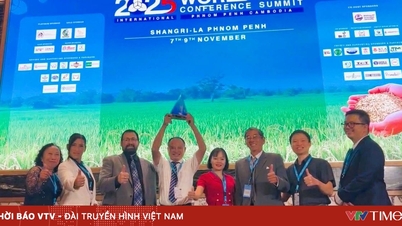












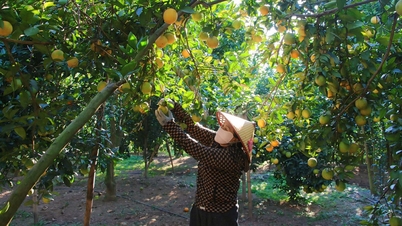



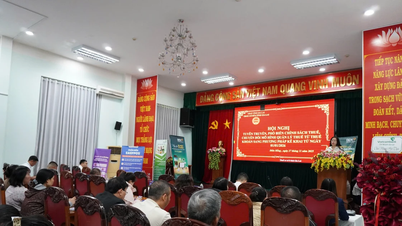





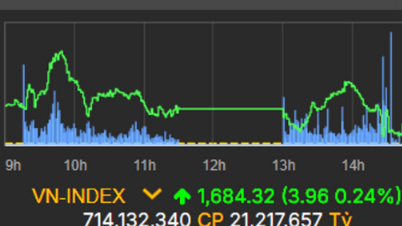



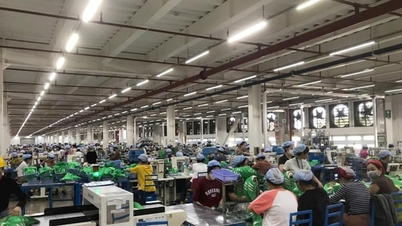
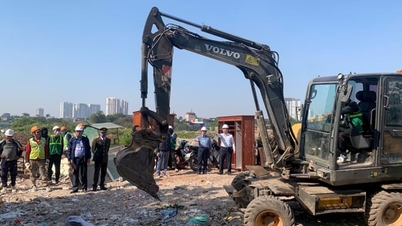


















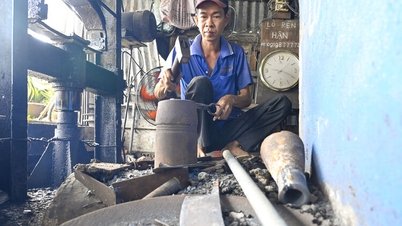











































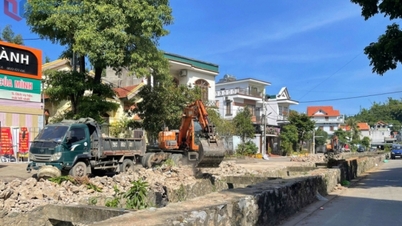














Comment (0)